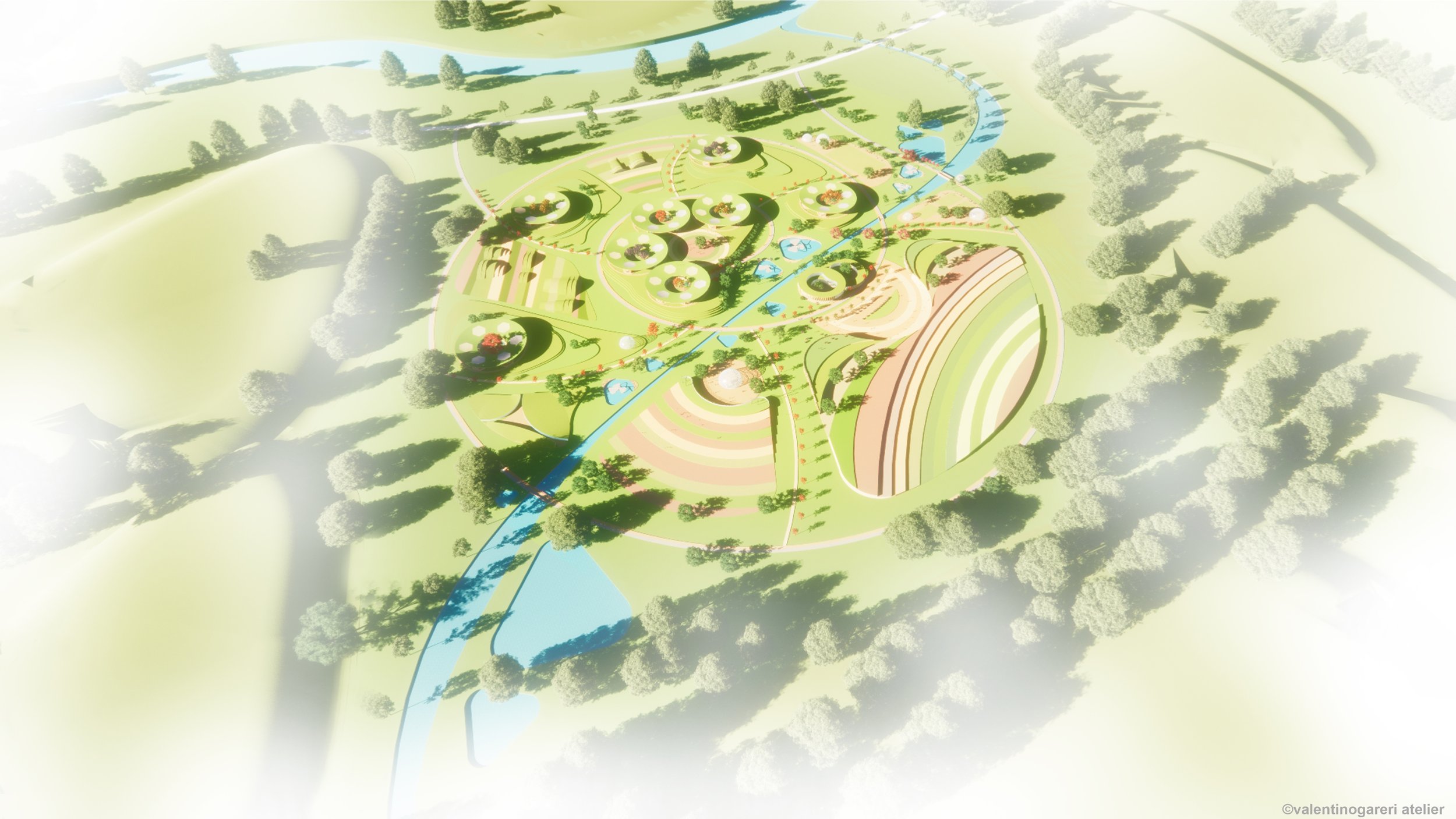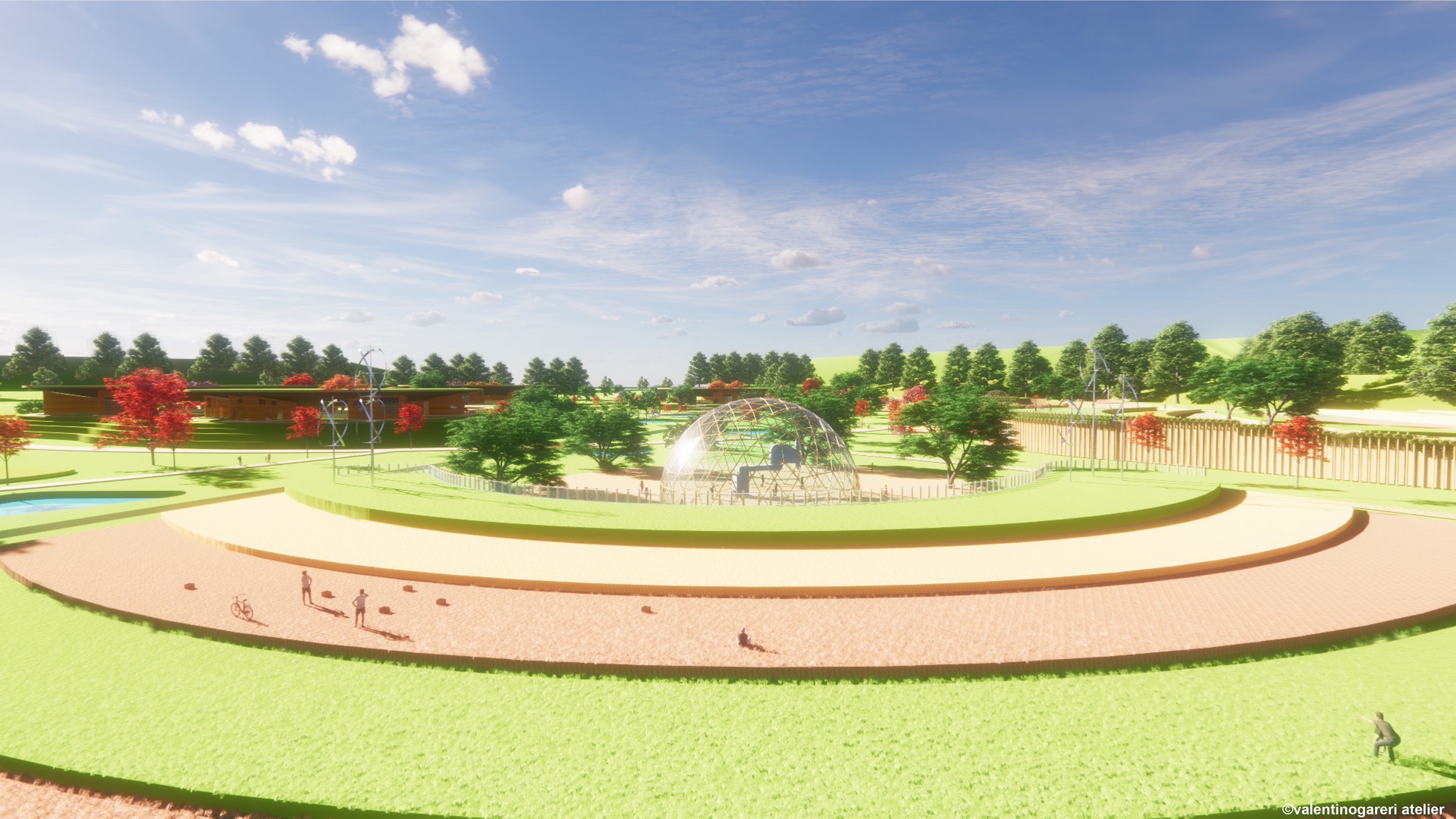
Dive in deeper. Scroll down for peer reviewed academic publications

Improving Public Health Outcomes through the Development of Networks of Regenerative Rural Villages | book chapter
This chapter challenges the concept of sustainable development, suggesting that healthy development should regenerate natural systems and have a net positive impact on both people and planet. Applying this lens to the UN Sustainable Development Goals shows that improving public health requires not just healthcare, but also provision of clean water and sanitation, clean air through the adoption of clean, renewable energy, access to fresh food, and economic opportunities. A holistic approach to both public health and sustainable development is required to provide all these services and infrastructure. The discussion identifies key principles and design elements for the development of a network of regenerative villages, each of which would include a renewable energy micro-grid, water micro-grid, regenerative agricultural system, and shared electric vehicles, all supporting a built environment where people can live, work and play.

The death of the city…
It has become commonplace for articles and presentations about cities to start with facts such as that in 1950, 30 per cent of the world’s population was urban and by 2014 that number had reached 54 per cent. Reference to this trend is invariably followed by an assertion that the trend must inevitably continue into the future, suggesting, for example, that by 2050, 66 per cent of the world’s population is projected to be urban. In this article I ask whether we have the courage to question whether this trend is inevitable or, indeed, desirable?

Human settlements arranged as networks of regenerative villages with nature-based infrastructure ecosystems | journal paper
Civil infrastructures have historically been developed as highly centralised, extensive, and complicated systems. Recent advancements in the development of energy micro-grids have opened the possibility of localised, intensive, and complex, nature-based infrastructure ecosystems. The land area required for this approach challenges the orthodoxy of ever-increasing urbanisation, greater density and centralisation of populations in cities. To determine whether centralisation or decentralisation is the optimal strategy we examine research in various disciplines. We argue that a conclusion can be confirmed when different disciplines arrive at that same position. We show that literature in town planning, regional economics, ecological economics, and public health all support the argument for decentralisation reached through civil engineering systems.

Economists and planners debate housing affordability | PIA New Planner journal
For the past two decades, governments have been designing policy based on the assumption that increasing housing supply will reduce pressure on house prices and address the crisis of housing unaffordability. As the debate between economists and planners heats up, we examine the key competing narratives and suggest a new way forward.

Networks of Circular Economy Villages: Political Economic Principles and Spatial Potentials | PhD Thesis
Faced with the challenges to restructure societies for long term sustainability, greater attention should be given to the design of human settlements and their relationship to each other. This thesis explores the pattern of human settlements and the possibility of finding a solution in the form of networks of Circular Economy Villages (CEVs). Each CEV would integrate energy, water, food and building infrastructure, aligning these with local ecological cycles. This would maximise local production and improve energy efficiency, while reducing both financial and ecological costs. The research question is: How would human habitats be structured in a political economic paradigm wherein populations were mobilised to regenerate natural systems and, through this, to rehabilitate and regenerate the human condition? Asking the question in reverse: How might a disruptive model for building human habitats enable the development of such a regenerative political economic paradigm? Critiques are most effective when accompanied by a viable alternative vision and an implementation strategy. The vision is therefore described at the outset, contrasting it with present political economic arrangements. The latter centralises production in densely populated cities, surrounded by less-densely populated towns and villages. The vision proposes a more even distribution of populations—a network of communities, each responsible for, and dependent on, the land upon which they are located. This thesis adopts a dialectical method, comparing centralised with distributed systems, extractive with regenerative processes, and linear with circular economies. Circular patterns underpin and connect all the chapters, exploring relational, temporal, spatial and holistic perspectives of circularity. By contrasting present circumstances with a possible future, various implementation strategies are developed—including town planning policies, a financial plan, and design principles for building networks of CEVs.

Design Guidelines for 21st century Garden Cities | Journal paper
This paper advances the development of a hypothetical, systems-based approach to the design and development of smart rural villages – a network of circular economy villages (CEVs). The method is to assimilate visionary ideas from 20th century town planning literature related to decentralisation and the development of new towns in rural areas, identifying key design principles.

Circular Food Futures: What will they look like? | journal paper
This paper explores how circular economy (CE) debates might contribute to, and support, the changes needed for a sustainable future. Full compliance with the three objectives of a CE identified by the Ellen MacArthur Foundation might help to describe a sustainable and circular food future. An analysis of the food system is therefore carried out to determine how food systems may be organised to (a) design out waste and pollution, (b) keep products and materials in use and (c) regenerate natural systems. It is posited that the transition to a fully circular economy will require a paradigm shift—another agricultural revolution—the transition away from large-scale industrial agriculture to a decentralised network of circular food systems

Planning for a Network of Circular Economy Villages | PIA New Planner journal
How might we design Garden Cities in the 21st century to support economic growth in regional areas? How will new technologies, particularly the internet and renewable energy, infuence future settlement patterns?

Strategic Planning for a Network of Regenerative Villages | Journal paper
Whilst the energy transition from fossil fuels to renewables offers significant environmental benefits, the other transition – from a centralised to a distributed energy system – underpins a disruptive model for planning cities, towns and villages. This paper asks: Is it inevitable that large cities will keep growing, while rural communities will continue to be deprived of resources and opportunities? Is the flow of people into cities inevitable? By contrasting the current centralising city model with a distributed network of villages, this paper offers ten reasons why the distributed network is preferable to centralisation.

Planning Agreements: Towards better integration of land-use planning with infrastructure planning | Local Government Law Journal
This 2004 article published in the Local Government Law Journal examines the legality of planning agreements, arguing that they are possible even in the absence of legislation, but that legislation should be introduced to provide consistency in application or alternatively to explicitly make such common law agreements illegal.
Planning Agreements were introduced into the planning legislation in 2005.
